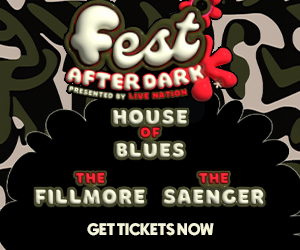The major label release from the standard bearers of New Orleans’ Mardi Gras Indian funk tradition is undoubtedly one of the most highly anticipated and long awaited New Orleans records in years. (We thought the record was coming out last year.)
Why the long wait? Because this was one of the most elaborate productions to date, featuring collaborations with Dr. John, Cyril Neville, Robbie Robertson, Bruce Hornsby, Allen Toussaint, Marva Wright, the Black Bottom Brass Band (from Osaka, Japan) as well as arranger Wardell Quezergue (a.k.a. ‘The Creole Beethoven’) and his Slammin’ Big Band.
Was this enormous effort worth it? The answer is a resounding yes. Ironically, however, this is owed more to the talents of the Magnolias themselves and the core accompanists. For example, the drum chair, so crucial to this kind of record, alternates between Willie Green, the Neville Brothers’ secret weapon, and Russell Batiste of The funky Meters. This record. is also the swan song for the infamous late percussionist Michael Ward, who embodied the reckless, yet intensely in-the-pocket spirit of Crescent City street groove. (We miss you Mike, ya old crazy dog.)
Then there’s Davell Crawford, a young, gospel-fueled demon on keys, and guitarist June Yamagishi, a Japanese expatriate, who has clearly mastered the New Orleans idiom. With these cats holding it down, you can rest assured that the true New Orleans spirit and groove is most definitely ‘in the house’ on these 16 diverse tracks.
The album’s highlights, such as the funky lead cut, ‘Pock-A-Nae’ (composed by Dr. John), the explosive ‘Party,’ the catchy anthem ‘Old Time Indian,’ and the gris-gris flavored ‘Black Hawk,’ owe most of their power not to the stellar guest stars, but to the rhythm section, and, of course, the call and response singing of The Wild Magnolias, led by the raspy, African warrior voice of Big Chief Bo Dollis.
Is this an instant classic that belongs on OffBeat’s 100 Essential Louisiana CD‘s list? Time will tell. Some local critics will argue that the album is ‘overproduced,’ that the major label imperative to make it more accessible and even radio friendly has cost the record the ‘raw, street flavor’ so evident on the 1975 classic They Call Us Wild. But for those hard-core lovers of indigenous New Orleans flavor, there are ‘in the raw’ recordings, like last year’s Indians Of The Nation.
Life Is A Carnival is obviously Mardi Gras Indian funk for the masses, but it is virtually impossible for the~e musicians, some of New Orleans’ finest, to ‘fake the funk.’




